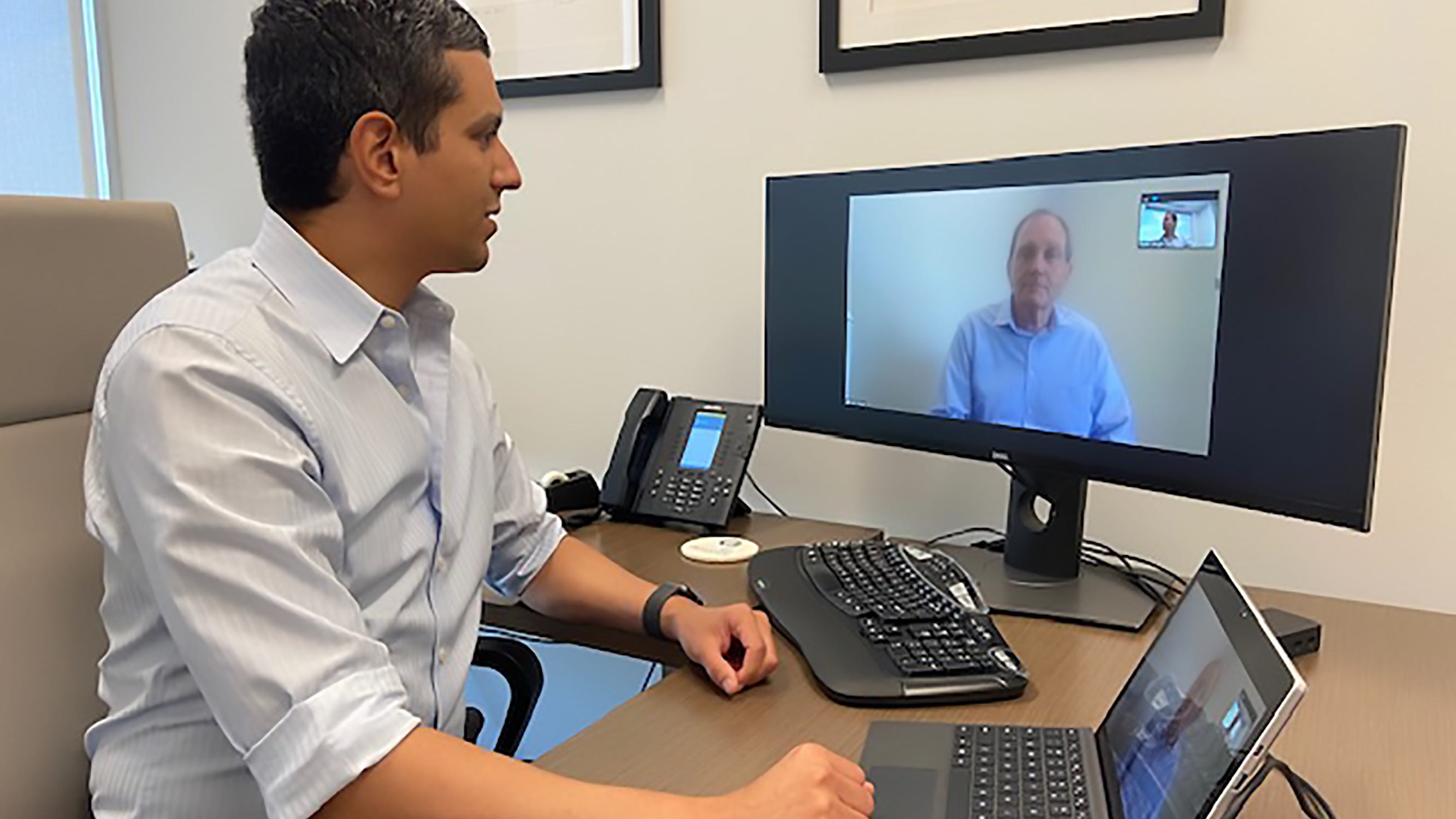
"If telehealth was not available, I fear that we would have gotten to her diagnosis too late, and the cancer would have spread," said Dr.
James Weber, CEO of Texas Digestive Disease Consultants, where Ramos works. "Telehealth access most certainly allowed us to take care of this patient and likely save her life.".
Christopher Ramos, a gastroenterologist with Texas Digestive Disease Consultants, meets with a patient through telehealth Wednesday. (Photo: Courtesy of Texas Digestive Disease Consultants).
Now, as Texas shuts back down amid soaring COVID-19 cases, Weber and doctors across the now-hardest-hit states face insurers that are starting to back away from the widely embraced approach to doctor appointments.
Most other insurers plan to reduce coverage of the visits in September even though Medicare and Medicaid is expected to cover them far more generously through the end of the year. Some of the expanded telehealth coverage was planned until the end of the "public health emergency," which is ill defined with no end in sight, said Weber.
Further complicating matters for doctors and patients are employer health plans that are exempt from the telehealth coverage expansion.
Paul Berggreen, a gastroenterologist who is president of Arizona Digestive Health, said his office staff must constantly check insurers’ websites to see current policies.
“A lot of my patients still don’t want to come in to my office,†Berggreen said.
Joy Cooper, an obstetrician and gynecologist in Oakland, California, co-founded the telehealth company Our Culture Care, to link black women to black doctors for telehealth appointments.
Even when working remotely, doctors need to spend time with patients and make decisions about their care, Kvedar said.
But he acknowledged it might be less expensive to provide care remotely, with patients taking their own blood pressure or temperature and, in some cases, doctors working from home.
Ateev Mehrotra, a Harvard Medical School associate professor of health care policy and medicine.
He said doctors worry the costs of purchasing telehealth software, training staff and patients is an investment that could "go down the tubes" once the public heath emergency is over and policies revert to pre-COVID levels.
BCBS of Texas said the insurer is monitoring the pandemic and will make benefits adjustments as needed.
The insurer already covers telehealth services, including waiving out-of-pocket costs for COVID patients, according to a statement from parent company Health Care Service Corporation.
Aetna has now dropped all out of pocket costs for mental health and addiction treatment visits, which Aetna CEO Karen Lynch said addresses COVID-19's "deadly undertow: a mental health crisis with significant impacts on all Americans.".
Even though many large companies' self-insured plans did allow more generous coverage, Katherine Wetzel, spokeswoman for parent company CVS Health, says several that hired Aetna to administer their plans wanted the insurer to set a deadline for telehealth due to the expense
James Weber, CEO of Texas Digestive Disease Consultants, is shown in his office with staff members pre-COVID-19. (Photo: Courtesy of Texas Digestive Disease Consultants)
"What my anxiety is, I need to provide services for our patients in greatest need and telehealth provides that opportunity
Some say there's no going back, however. When it comes to telehealth, "now that we’ve experienced this, I have no question of wanting to retain it," said Heather Gates, CEO of Community Health Resources, a chain of mental health and addiction treatment and service centers in Connecticut
